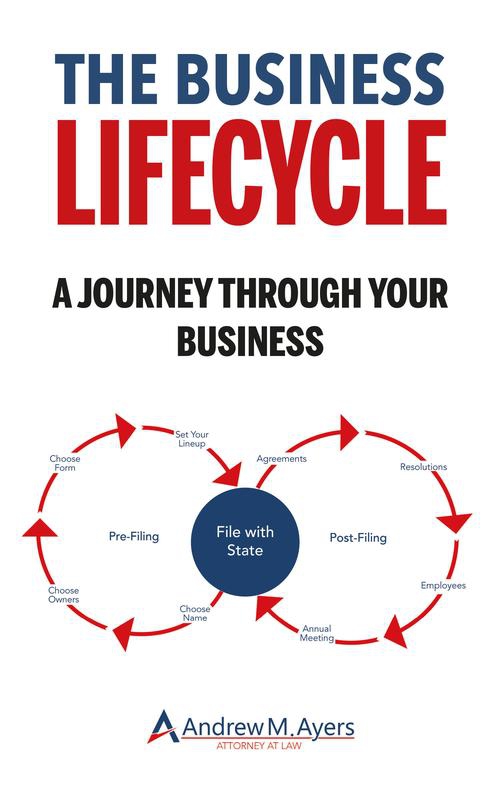What are the pros and cons of a business trust?
When we're looking at a Business Trust, the first thing I'm going to have to warn you is that this is not for everybody. Many people creating a business don't need to go to the lengths of creating a business trust. However, for others, there may be some significant reasons why it would benefit you. So we're going to look to review the pros and the cons of a business trust and from there you can start that thought process and start those questions does a business trust make sense for you and your business?
Advantages of a Business Trust
The first thing we're going to look at is the pros of a business trust.
- The first thing it's going to do, it's going to avoid probate when the business owner dies. So with the business trust instead of you owning your company individually, the trust is the one who owns the business. So if something happens to you, as the owner of the business, who owns it in a business trust, you're probably the trustee and in most cases, then when you die, the trust will still be there to manage the business and you won't have to worry about a probate court being involved with your business and trying to sort out who should inherit it.
- The next thing it does in connection with the probate court is also it will reduce any possible estate taxes because again, the business won't be part of your estate. The trust will be the one owning the business and managing it. So you tend to have less than the state taxes if any because the business is not going to be subject to the probate court and it's not going to be part of your probate estate.
- The third reason that we have for using a business trust is a succession plan. So I'm a big proponent of making sure you have business succession planning documents, but if you don't, one way to create a plan is by using the trust where you have a trustee likely you owning the business and running the business. But then you have a succession of trustees after you who can then take over and keep the business going when you die or if you become incapacitated.
- The next advantage of a business trust is if you want to make sure you're keeping your business assets separate from your personal assets. The business trust will work similarly to an LLC, in that the business is not owned by you personally. The trust is the one who owns it more and the trust can even own an LLC and this gives you an additional layer of protection from liability.
- Another advantage for you is that it gives you greater privacy protection. So many of my clients will create a trust either on assets or on their house and rather than put it in the name of John Smith, they'll create a trust with an opaque name meaning that the gold wallpaper trust now when someone looks up the property records for the house they say it's owned by the gold wallpaper trust that doesn't tell you who owns the house. When people look up the filings online with your state, it'll say the gold wallpaper trust and won't say your name. So if you have reasons you want more privacy, using a trust on your business gives you another layer on top of just the LLC.
- If you have concerns about protecting your assets from creditors, an LLC, and a trust, we're both through this as well. We want to keep these businesses out of your personal name. So we keep your personal assets off the table if there's a lawsuit or some kind of dispute regarding your business.
- Finally, it's a simple formation process compared to some other business structures. We're just creating a trust that can then own your company. Rather than create more advanced structures, that business trust can be a quick way that we can get your business set up. And all of these different pros can be available to you, especially the liability protection and the privacy you're looking for.
Disadvantages of a Business Trust
Now for everybody, as I said a business trust is not necessarily the way to go. There are three complications you may run into if you create a business trust to own your business.
- The first is there's going to be an ongoing cost to maintain the trust. So somebody's got to manage the trust. There's going to be additional administration costs it's going to have separate paperwork it needs to file.
- Another complication you may run into is there are different legal regulations from the IRS regarding how the business has to be treated when it's owned by a trust.
- The third is the fiduciary relationship that can be present between the trustee and the beneficiaries. It's going to require the trustee to act in the best interest of the beneficiaries of the trust as opposed to necessarily the shareholders of the business. So it's a little different than your typical LLC, but it's not that different.
So you want to make sure you're understanding these three complications before you just run off to your attorney and say I want to set up a business trust and the important part of that last statement is going through an attorney to make sure you set it up correctly. This is not something I would trust to an online website. There are intricate parts of creating a business trust that would own your assets and would own your company and especially if it's going to own your property as well. Like your house. We want to make sure this trust is set up correctly. I'm constantly asked by clients to fix trusts with all kinds of minor problems that could have been avoided if the client had worked with an attorney in the first place.
Next Steps
So if you're not sure where to go from here and you want to discuss the idea of putting your business new trust further, let's set up a Legal Strategy Session, a 15 or 20-minute phone call where we can go through your current situation and what are the issues you're facing and we can help you take those next steps to determine if a business trust is right for you and your business.





